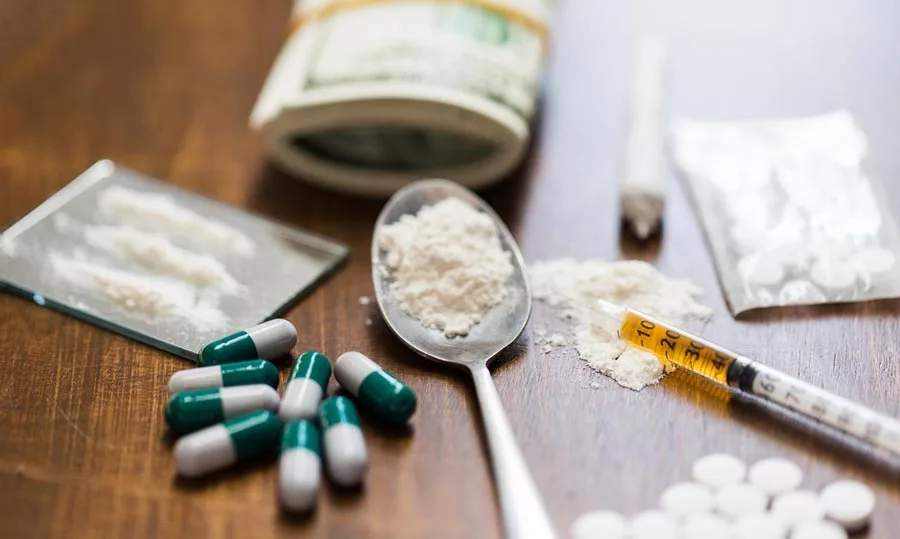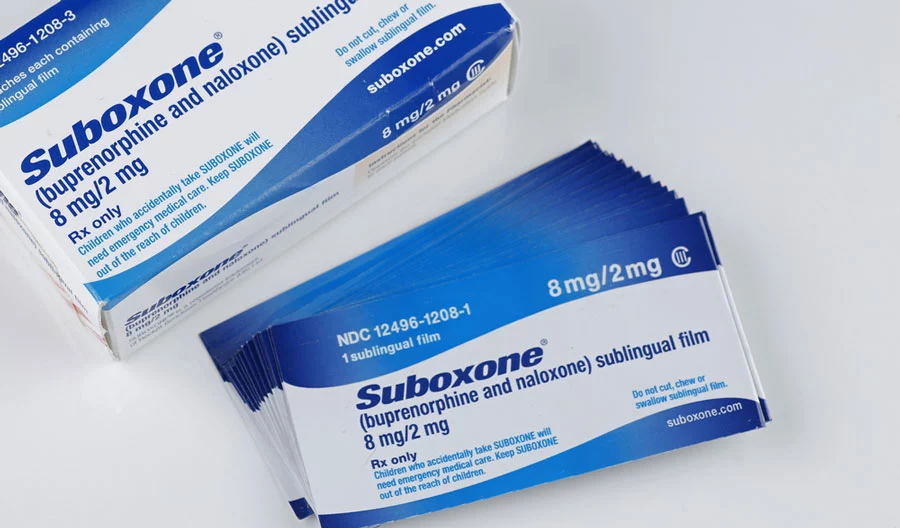Fentanyl Detox
A Detox Center for Fentanyl Withdrawal
Fentanyl is a prescription opioid medicine that requires fentanyl detox. There is a patch variant of the opioid analgesic Fentanyl, which is used to relieve persistent, excruciating pain. After being absorbed via the skin, the medication travels through the circulatory system and eventually reaches the brain, where it attaches to opioid receptors.
After this occurs, the patient feels euphoric, and their pain is effectively covered for the duration of the patch.
If you’re experiencing withdrawal or preparing for fentanyl detox, this article explains the process and how South Shores Recovery can be of service.
What are the Risk Factors for Fentanyl Abuse?

Unfortunately, Fentanyl is extremely addictive, much like every other opioid medication. After the initial doses, the patient may feel euphoric, although that feeling may wear off rapidly. Medical recipients often try to overcome tolerance by increasing their Fentanyl dosage against medical advice.
They may also be abusing alcohol or another prescription substance that counteracts the effects of Fentanyl. A person’s chances of experiencing an overdose are greatly increased by this type of drug abuse.
That’s one side of the coin. And believe it or not – the least prevalent. Only a small fraction of medical clients nationwide are even prescribed fentanyl. The reality is that most of the users of this drug obtain it through illegal purposes via the black market drug supply.
At South Shores Recovery, we’re well-versed in helping clients overcome fentanyl. addiction and other types of drug abuse through our extensive addiction treatment process.
Fentanyl Deaths Surge in the US
Deaths in the United States from opioid overdoses have increased by almost 500% since the early 2000s. Opioid abuse has reached epidemic proportions, and it has been labeled a national emergency by many government agencies.
Fentanyl overdose deaths have increased drastically in recent years, and the opioid epidemic has affected nearly every community in the country. More people have died from opioid overdoses since 2016 because of prescription Fentanyl than any other narcotic – and even some deadly diseases.
Fentanyl derivative addictions are among the deadliest and most severe types of drug addiction. Even years after quitting for the final time, people may still experience cravings.
People are prone to relapse if they do not identify and learn to manage with the mental and emotional stresses that contribute to their addiction.
Addiction to Fentanyl and other opioids can last for years, putting a person’s health, money, and life at risk if they don’t get professional care.
Will Fentanyl Ever Be Taken Off the Prescription Drug Market?
Individuals’ experiences with withdrawal may vary, but they often start anywhere from 12 to 24 hours after their last dose. The worst of the symptoms will hit during the first 48 hours and last for up to a week.
However, it’s not uncommon for post-acute withdrawal to linger for months or even years after quitting. While physical symptoms typically improve within a week, emotional symptoms like despair, anxiety, and cravings sometimes persist well beyond the acute phase.
Fentanyl Detox & Withdrawal Helpline – Call Now!
How Dangerous Is Withdrawal, and What are the Symptoms?
One of the primary benefits of a medical drug detox for fentanyl is remaining comfortable during the pain of withdrawal. Our treatment center will help you stave off the edge of the following symptoms:
- Yawning
- Watery eyes
- Stomach cramps
- Sweating and intense chills
- Intense cravings
- Vomiting
- Anxiety
- Increased heart rate
- Increased blood pressure
- Other mental and physical symptoms
Detox At Our Treatment Center Is Only the Beginning for Opioid Addiction

At our treatment center, we specialize in helping those who have experienced the severe pain of fentanyl derivative addiction. However, during addiction treatment, overcoming the painful withdrawal symptoms associated with fentanyl and synthetic derivatives is only the beginning. After completing the entirety of the withdrawal process at our fentanyl detox center, the real healing of addiction treatment can begin.
Maintaining contact with a medical professional who can provide support and guidance during the recovery process is essential for those attempting to overcome opioid addiction. Medications like Buprenorphine and Naltrexone, which are used as replacement therapies, are highly successful at reducing drug cravings experienced during the post-acute withdrawal period.
Is Cold-Turkey Detox from Fentanyl Possible?
Fentanyl withdrawal should not be attempted cold turkey. The medicine has been shown to reduce a person’s pulse rate, heart rate, and blood pressure. These systems can go awry if drug treatment is abruptly terminated. There can be a spike in blood pressure that causes health problems like strokes and heart attacks.
In addition, there are a wide variety of persistent mental health problems associated with Fentanyl withdrawal. People who try to quit cold turkey on their own are at increased risk of recurrence and damage because of the unpleasant symptoms they may encounter.
Detoxification in a medical setting is constantly suggested for substances like Fentanyl. Patients can be put on a tapering-off regimen where they receive progressively lower dosages of Fentanyl from their doctors. Buprenorphine/Naltrexone can be used in conjunction with the original medicine, or the two drugs can be used interchangeably. Weaning off an opioid gradually decreases the intensity and length of withdrawal.
What Helps During Detox?
What Should be Avoided?
Detoxing without medical supervision is extremely dangerous. Fentanyl withdrawal can be severe. Caffeine should also be avoided during Fentanyl withdrawal and detox.
How Is Fentanyl Different from Other Detoxes and Withdrawals?
Medical detox begins with a thorough evaluation of the patient’s physical and psychological condition. They are also checked for health issues that may hinder or worsen the detox process, such as polydrug usage.
Each client has their own team of caregivers comprised of medical professionals, counselors, and social workers. As the patient goes through detox and beyond, they are supported by a team of advocates who are there for them every step of the way. Individualized strategies for ongoing maintenance are developed to aid in the patient’s readjustment to life without medications. Patients are putting their lives at risk if they relapse without continuous care.
Opiate and Opioid Detox Help – Call Now!
Why Is Fentanyl Withdrawal So Intense?
Despite fentanyl being so strong, it has a short-acting half-life – meaning that withdrawal is fast to manifest. This also increases the intensity because of the rapid dispersal. However, fentanyl is unique in the fact that it attaches to fat cells. Although the “high” doesn’t last long, and it’s eliminated from the urine and even blood, the fact that it sticks to fat allows it to cling on, becoming almost immune to traditional buprenorphine induction methods.
When and how fast a person can withdraw depends on a number of things.
There is no one typical person. Individuals might experience the effects of drug misuse and withdrawal in a variety of ways. The length of time it takes to withdraw can vary depending on factors such as the patient’s age, weight, metabolic rate, and general health. In addition, someone who is a polysubstance abuser or who has used Fentanyl for an extended period of time may experience more severe or prolonged effects.
Despite these considerations, assistance is available for those struggling with Fentanyl abuse. Addiction is an illness, not a moral failing, and the specialists working in medical detox and rehab institutions realize this. Patients who undergo tried-and-true medical treatment and therapy programs have a much better chance of maintaining long-term abstinence.
Suboxone for Fentanyl

Suboxone is a popular treatment for fentanyl withdrawal because it combines two medicines that both reduce cravings and alleviate withdrawal symptoms.
Distinct from fentanyl, it does not produce euphoria or dependence by stimulating the receptors responsible for these effects. As a result, your body is able to satisfy the temporary need brought on by opiate addiction, and the cravings for more are eliminated over time.
However, as mentioned above, because of the bioavailability of fentanyl in the fat cells, users must wait longer than the normal 12-24 hours before beginning buprenorphine induction.
What Can I Do to Aid a Loved One Struggling with Fentanyl Addiction?
Fearful as it may be, taking action to help a loved one who has developed a dependency is essential.
- Among the most effective actions are:
- Putting together a team of experts to intervene.
- Put an end to providing them with any support of any kind.
- Have them attend a residential or non-residential treatment facility
- Move them toward a doctor who can give them suboxone.
- Help them get through treatment and rehabilitation
These are the building blocks of a successful recovery from opioid use, and they must be laid at some point. Taking these choices one at a time is a good strategy, but you need to move quickly because your family member’s life is at stake.
Is There Anything to Help Sleep During Withdrawal?

The withdrawal symptoms from fentanyl can include anxiety, irritability, and insomnia. Due to the physical toll of withdrawal, it’s crucial that you find effective strategies for managing these symptoms and developing regular sleep routines.
It is extra crucial to find ways to rest during fentanyl treatment, as sleep loss can exacerbate symptoms. Our fentanyl detox benefits include receiving a variety of healthy medications and natural options to help you rest and relax.
We advise sticking to a tight schedule that consists of:
- Sharing the same bedtime routine
- Relaxing routines like reading before bedtime
- Limiting electronic use right before bedtime
- Not taking sleeping pills
As you work to overcome withdrawal symptoms, giving your body and mind a chance to rest and heal should be your top priority.
Start Fentanyl Addiction Treatment – Call Now!
Is There a Quick Fix for Fentanyl?
Stopping fentanyl abruptly and without help is extremely risky. When an addict tries to quit cold turkey, they risk experiencing dangerous withdrawal symptoms that could result in fatal complications or a swift relapse.
In each of these cases, fentanyl users are putting themselves in graver danger than they would be if they sought out medical assistance to help them withdraw from the drug.
An opioid addict must be experiencing withdrawal symptoms in order to use Suboxone. In order to get the support you or a loved one needs, it is best to talk to a doctor or rehab center about a strategy to withdraw gradually while managing withdrawal symptoms.
Finding Expert Help for Fentanyl Addiction Rehab

Understanding the importance of seeking expert help is the first step in helping someone overcome their fentanyl addiction.
Services offered by rehabilitation centers may include:
- Help from a psychiatrist
- Effective Medical Intervention
- Psychiatric and Behavioral Health Insurance
- Strategy for obtaining sufficient nutrition
South Shores Recovery and Fentanyl Detox
At South Shores Recovery, clients have multiple options for navigating the detox and withdrawal process. You’ll have a variety of ways to keep yourself comfortable, giving you the best odds of long-term recovery.
All natural, holistic options are available as an alternative to typical pharmaceutical detox methods – and can accommodate you based on what feels more comfortable for you.
Additional inquiries should be directed to our admissions team, who can help you with general information.
related pages
- Benzodiazepine Detox
- Opiate And Opioid Detox
- Suboxone Detox
- Behavioral And CBT Therapy
- Dual Diagnosis Disorders
- Mental Health Treatment
- Depression And Mood Disorders
- Alcohol Detox
- Drug Detox Programs
- Addiction Treatment Program
- Mental Health Therapies
- Drug Rehab Orange County
- Drug Rehab Santa Ana
- Couples Rehab Orange County
- Alcohol Rehab Orange County
- Health Net Rehab Center
- Fentanyl Detox
- Dual Diagnosis Treatment Orange County Programs
- Drug Rehab that Accepts TRICARE
- TRICARE Alcohol Rehab
- Alcohol Rehab Santa Ana
- Crack Detox
- Alcohol Detox Orange County
- Heroin Detox
- Medication Assisted Treatment Orange County
- Orange County Drug Detox
